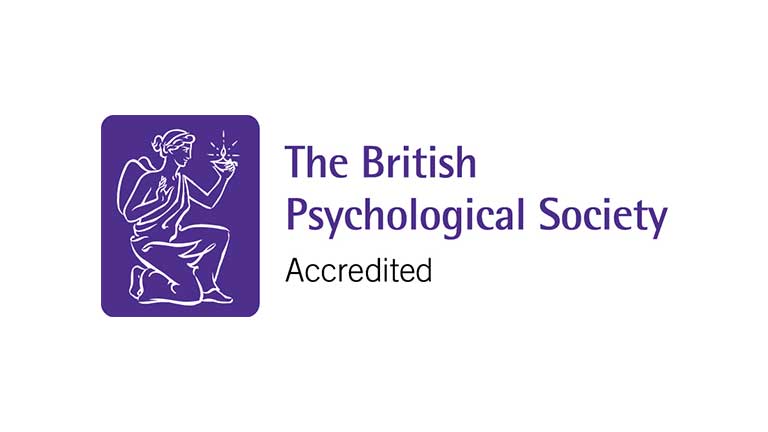MSc Applied Sport Psychology
Train for professional accreditation as a Sport and Exercise Psychologist, with a range of options to enable students who are already in employment to combine work with the study of sport psychology.

Entry requirements
A 2:1 degree or above in a relevant subject area though all applications will be reviewed on an individual basis
We welcome applications from students who may not meet the formal entry criteria but who have relevant experience
UCAS code Apply to Marjon
UCAS institution code P63
Duration One year full-time or two years part-time only
Any questions about postgraduate study at Marjon?
Contact Rachel Bailey-Lewis, our Student Recruitment Officer (Postgraduate).
Course Summary
Our Applied Sport Psychology degree develops and utilises the applied skills and techniques required to be a practitioner in sport and/or exercise psychology. The programme provides opportunities to experience the practical nature of what a sport and exercise psychologist does as well as enhance knowledge and understanding of contemporary research in the field of sport and exercise psychology.
One of the standout features is the applied professional practice module. This module enables the student to engage in a work based learning environment to practice, develop and reflect upon the application of the appropriate skillset, and it’s development, within sport and exercise psychology. This feature will also be attractive to students who are already in employment as it allows them to combine work and study sport psychology.
Our MSc Applied Sport Psychology meets the requirements for British Psychological Society (BPS) stage 1 and the British Association of Sport & Exercise Sciences (BASES) supervised experience. In addition the degree will explore contemporary issues and challenges within sport and exercise psychology.
Graduates of the programme who have a sport and exercise science background can apply for the British Association of Sport and Exercise Science (BASES) Supervised Experience, which is the route to becoming a BASES Accredited Sport and Exercise Scientist (Psychology), and they can log their placement hours towards this. This programme also aligns to the professional standards of the Health and Care Professional Council (HCPC).
Why this course at Marjon?
On completion of this degree you can go onto Stage 2 BPS or BASES supervised experience
Learn from qualified sport and exercise psychologists who are consulting with clients
Explore cutting edge research such as mental health and wellbeing in sport, and abuse in sport
50 hours of experience understanding how sport and exercise psychology is used in a specific workplace
Join the Marjon Psyching Team - work with the public to empower, motivate and move the masses in large endurance events
Learn the core aspects of practising sport and exercise psychology as well as the considerations for training and developing practitioners
Modules for this course
1st Year
Applied professional practice
Development of the sport psychology practitioner
Research methods for postgraduate study
Contemporary interests in sport psychology
Psychological and therapeutic skills in sport psychology
Master's thesis
What might you become?
MSc Applied Sport Psychology degree prepares students to:
- Become a BPS chartered Sport and Exercise Psychologist - graduates of the programme who also have a British Psychological Society (BPS) accredited route or BASES Sport and Exercise Psychology Accreditation Route (SPEAR) undergraduate degree can register for stage 2 of the BPS’s qualification in Sport and Exercise Psychology on completion of this MSc.
- Become a BASES Accredited Sport and Exercise Scientist (Psychology) - graduates of the programme who have a sport and exercise science background can apply for the British Association of Sport and Exercise Science (BASES) Supervised Experience.
- This MSc Applied Sport Psychology degree also prepares students to pursue a range of careers with the application of psychology in sport and exercise performance, health and wellbeing, and sport and exercise rehabilitation, as well as possible further studies in postgraduate research.
Accreditations

The British Psychological Society (BPS)
BPS accreditation is recognition that the course provides excellent preparation for graduates to go on and pursue BPS chartership as a Sport and Exercise Psychologist.
How you’ll be taught and assessed?
How will you be taught?
Teaching typically includes lectures, seminars, and interactive groups discussions and informal presentations. There are typically 6 hours of contact per week plus independent and group study.
How will you be assessed?
Assessment methods are through case studies, practical assessment, critical reviews, essays, oral presentations, portfolios, and research thesis.

Melissa is a practising BASES accredited and HCPC registered sport and exercise psychologist She has worked with a wide range of people ranging from professional football to amateur runners to international surfers. Her interests include increasing self-awareness and positive growth and mental health, developing confidence and emotional control, reducing anxiety, and facilitating communication with athletes, parents, coaches and managers.
Fees and funding
Fees UK students: £8,500 per annum
Fees for International students: £14,600 per annum
This fee covers your tuition and access to course-specific equipment and facilities, as well associated services including access to the library, study skills support, IT support, student support and wellbeing services and membership of the Student Union. There may be additional costs by course.
Funding available for this course
Our Student Funding Advisors offer confidential and impartial advice about your funding options.
Learn moreLecturers

Sophie, who plays pool for England, teaches sport and exercise psychology principles and how these can be applied to improve sport performance and wellbeing.

Alister teaches psychology and its applications to sport, exercise, and health. His main research interest is how psychological interventions can be used to improve the performances of people who participate in endurance events, such as middle- and long-distance running, cycling, swimming, and triathlon events.

Pille is a lecturer in Sport and Exercise Psychology and she teaches across a range of undergraduate and post-graduate sport programmes.
More information
Indicative timetable for Semester A:
- Tuesday 4-6pm - Research methods
- Tuesday 6-8pm - Applied professional practice
- Thursday 4-6pm - Development of the sport & exercise psychology professional




